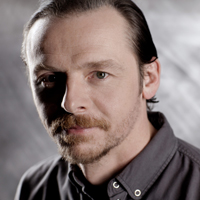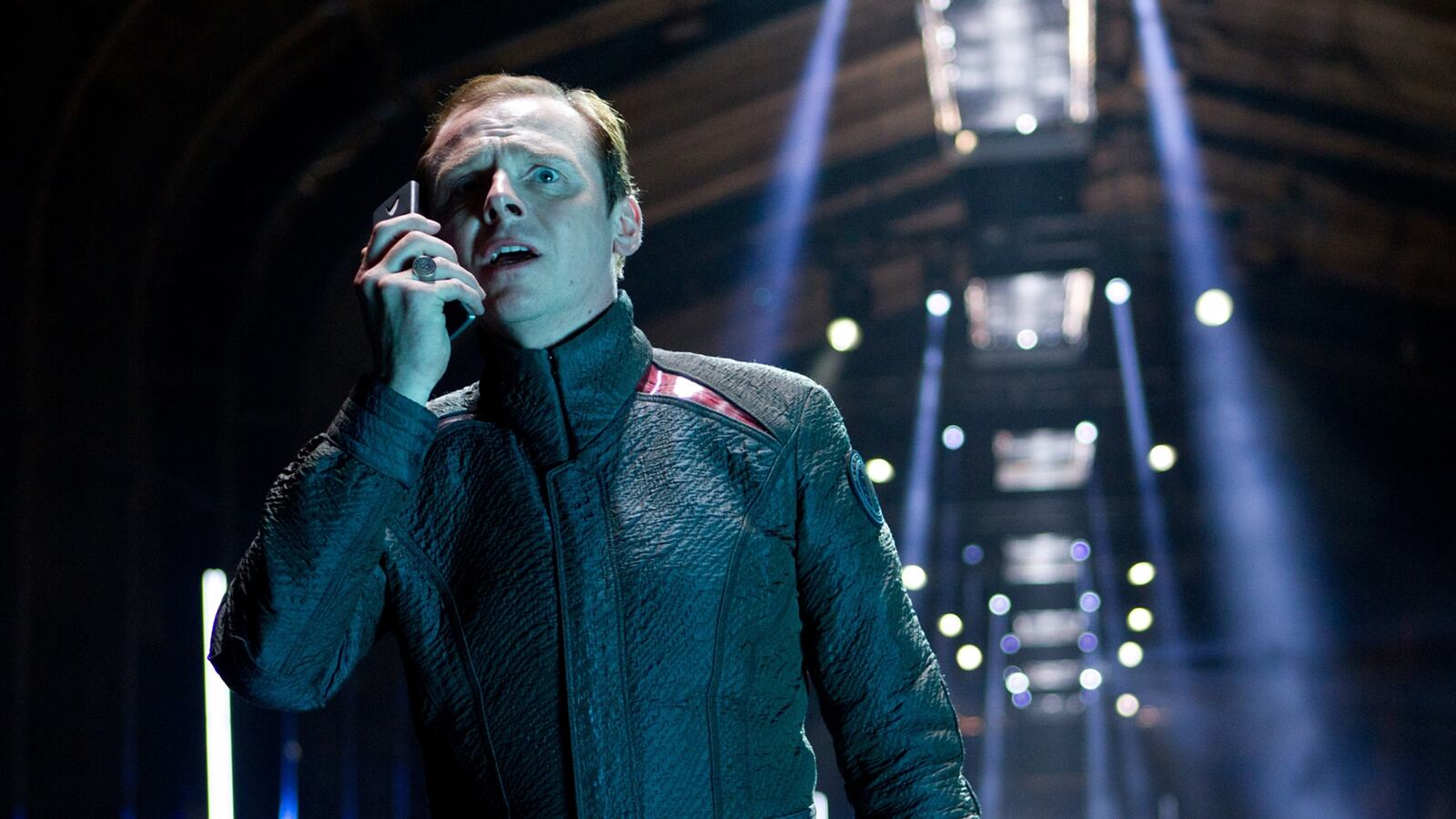When I found out about playing the role of Scotty for the Star Trek reboot, it felt like a bomb had gone off near my head. I got asked in such an insalubrious way from J.J. Abrams. In an email that came out of nowhere, J.J. literally wrote, “Do you want to play Scotty?” It didn’t even say, “Dear Simon” or “Love, J.J.” I emailed him back and said, “What the fuck, man? You can’t just do that to me. That’s crazy! You’ve got to take me out to dinner or something or offer me something to read.” It was huge!

I said, “I don’t know,” but J.J. let me think about it. He told me, “The worst thing that could happen is that every couple of years we get together and have fun.” Of course, I said yes. The role was given to me because Scotty is a slightly lighter-hearted character in the sense that he’s kind of the Everyman, so he reacts to situations like we would really. I felt elated and impressed, and slightly like I was having a dream.
I discovered Star Trek in the ‘70s when I was 9 years old. After the live-action series had been cancelled, they made an animated version of it that then went on to run for a couple of seasons that was predominantly voiced by the original cast. BBC2 would rerun the show at 6 p.m. every night during the week, so every time I had my dinner I would sit down and watch Star Trek. I was already a big sci-fi fan, since Star Wars had already hit and it opened me up to the possibilities of the sci-fi world. Star Trek always seemed like a slightly more grownup, intellectual, and philosophical version of the genre. I loved the characters and the way that each of the episodes gave a tale on morality.
One of my favorite Star Trek episodes was “The Corbomite Manuever,” which actually starred Clint Howard—Ron Howard’s little brother who was always in his films. He was this odd, all-powerful, little child who had a proxy that was a terrifying alien named Balok. Balok would appear on the Enterprise’s view-screen as this dome-headed, slanty-eyed, terrifying-looking creature. His mouth didn’t move when he talked, making him look like a bizarre corpse. As a kid, I was terrified of that face. I used to wait for it at the end of the show, because they would always show a picture of his face during the end credits. It would either be the Orion slave girl or it would be Balok; it was always like Russian roulette whether I was going to see him or not. It used to give me nightmares, yet I somehow found it fascinating.
So when Star Trek became a film franchise, I was immediately on board.
I went to see the first one at the movies when I was 9. When I saw Star Trek II: The Wrath of Khan, I thought it was a film that was quite conceptual and philosophical, the same way that the TV show had been. The creators realized they could bring in some more adventure into it with a little more of the swashbuckling Star Wars feel. One of my favorite moments in that film was when Spock mends the warp core and Captain Kirk goes down to see him. Spock stands up, and before he turns around to face Kirk, he straightens his jacket. It makes me cry every time.
Scotty was always someone I related to because he’s a Brit and from the same land map as me. When I was younger though, I used to like Chekov because he was the kid on board. As I got older, I started to admire Kirk’s swagger, cockiness, and how he was with the ladies. Invariably, I just grew to love Spock because he’s such an infuriating, complex, and loveable character. But choosing a favorite Star Trek character is like picking your favorite Beatles member—it’s a tough call.
My character came into the first film about 70 minutes in, but to be there from the beginning in Into Darkness and have this whole storyline where Scotty’s principles actually end up saving the day was great.
I remember reading the script for Into Darkness when I was in New York. Bryan Burk, the producer, went to my hotel and gave me this watermarked copy. I was with a friend at the time and I said I was going to go up to my room to read the script—just a couple of pages—and I’d be back down in 20 minutes, because we were in the middle of Christmas shopping. Five minutes later, I phoned back and said, “I’m not coming down.” I read the whole thing—I devoured it—and was leaping around my room, cheering and screaming. I couldn’t believe the twists and turns and the audacity of it and its relationship to other Star Treks. It was a joyous day—not only because it was a fantastic read (all the spectacle and wonder that you see in the film was all there in the pages), but also because Scotty had an arc and a story.
I was on the first Star Trek shoot for three weeks and I was on this one for five months, so the experience was a lot longer. It was bigger, with a third more locations and a third more of the size of the sets. Everything was just more in every way. The film sort of mirrors our true-life relationships because the first film was about all of us coming together for the first time and the second film was about us learning to work together. We ended up being a family and I genuinely think that’s what we are now. I really value these guys and I love spending time with them.
J.J. is a massive enthusiast and an incredible force of creativity and collaboration. He quite effortlessly brings out the best in everybody and you just want to do your best for him. He keeps it very light on set and fun, taking everything all in with stride. It’s a gift for any actor to have that kind of experience on a film.
Star Trek is nearly 50 years old now and it’s been around for so long because I think it offers hope for us as a species. The thing people have always been attracted to is the idea that we might live beyond this age of conflict and uncertainty. And it’s not only that, but it’s also the ability to work together and live in a world where everyone is accepted no matter who you are.
The original series with Gene Roddenberry was incredibly progressive. It started barely 20 years after the end of World War II, with a Japanese officer aboard the Enterprise, a black woman in charge of an entire division, and a Russian on board—albeit in subordinate roles, but it was an incredibly progressive move. It offered this utopian idea of cooperation and that’s always going to be something to strive toward until we actually achieve it. In that respect, Star Trek will never go out of fashion.
As told to Jean Trinh





